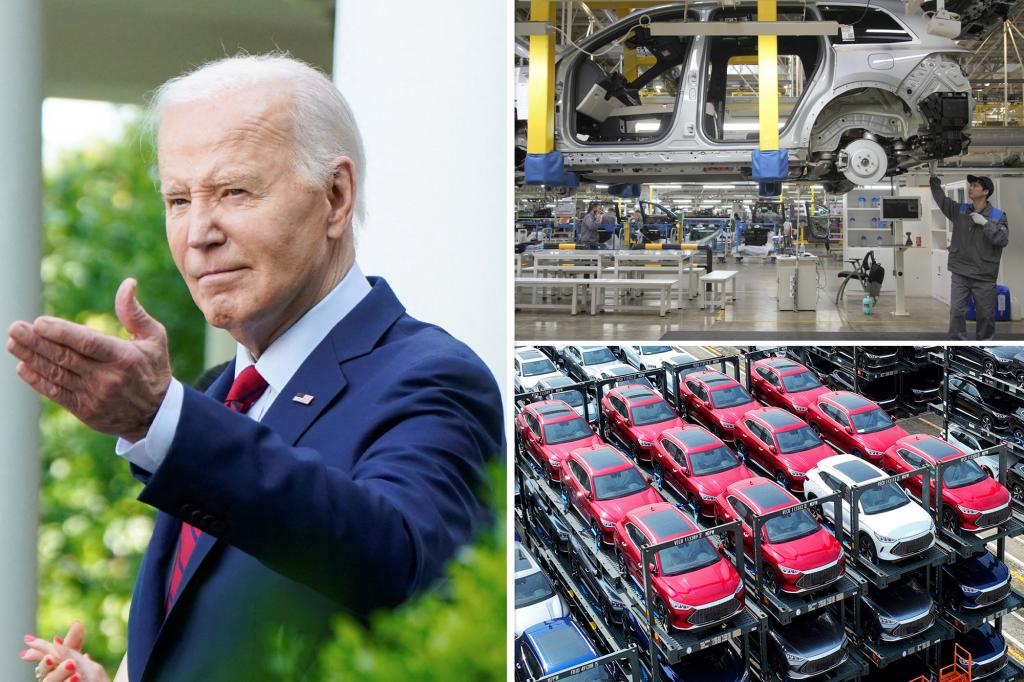President Biden recently announced new tariffs on Chinese goods in an effort to address economic issues and escalate former President Donald Trump’s trade war with Beijing. These tariffs will apply to approximately $18 billion in imports, including metals such as steel and aluminum, green energy technologies, and certain semiconductors, construction cranes, and medical products. Over the next two years, there will be varying percentages of tariffs imposed on electric vehicles, solar panel parts, and other goods.
Chief White House economist Lael Brainard highlighted that China has been prioritizing its own growth at the expense of others, which is the reason behind implementing these new tariffs. Trump has also expressed intentions to increase tariffs on Chinese products further, potentially up to 200% on electric vehicles. The former president initiated tariffs on Chinese goods in 2018 with the hopes of renegotiating trade agreements to benefit US companies. Despite concerns about increased costs for American consumers, both parties have shown support for these tariffs.
Biden decided to maintain Trump’s China tariffs and announced an additional 15% tariff on certain goods like steel and aluminum during a recent trip to Pennsylvania. Trump previously imposed tariffs on steel and aluminum from various countries, including China. Additionally, he also levied tariffs on Chinese goods totaling $362 billion in annual imports. While the US and China reached a “Phase One” agreement in January 2020, further negotiations were disrupted by the COVID-19 pandemic in March of that year.
As the economy remains a top concern for voters, Biden’s tariff announcement aims to address issues like high inflation and interest rates. Polls have shown lower confidence in Biden’s ability to manage the economy compared to Trump, with 38% of US adults having confidence in Biden and 46% in Trump, according to a recent Gallup poll. Another poll found that more people trust Trump over Biden on economic matters, signaling a potential political challenge for the current administration.
Republicans have criticized Biden for being too accommodating to the Chinese government on various issues, such as the COVID-19 origin investigation and halting the exports of synthetic opioids like fentanyl. Congressional Republicans have also raised concerns about alleged corruption involving the Biden family and their dealings with Chinese government-controlled businesses, which included the president’s son and brother. These ongoing issues may play a significant role in shaping future US-China relations and trade policies.
Overall, the US-China trade relationship remains complex, with both administrations taking different approaches to address economic concerns and manage relations with Beijing. While Biden’s tariffs aim to counter China’s self-serving economic practices, challenges related to public confidence, political perceptions, and bilateral disputes continue to shape the evolving dynamics between the two countries. The upcoming presidential rematch between Biden and Trump further adds to the uncertainties surrounding future trade policies and international relations.


